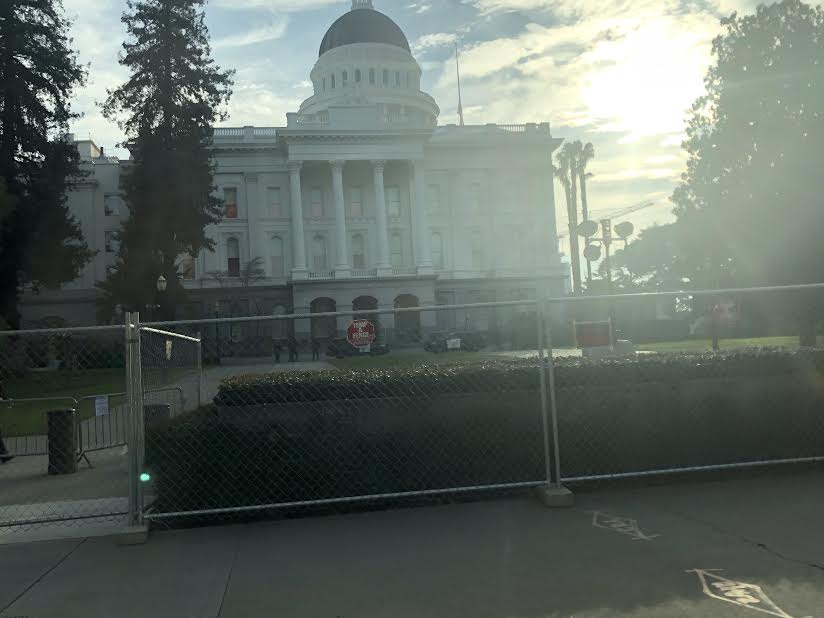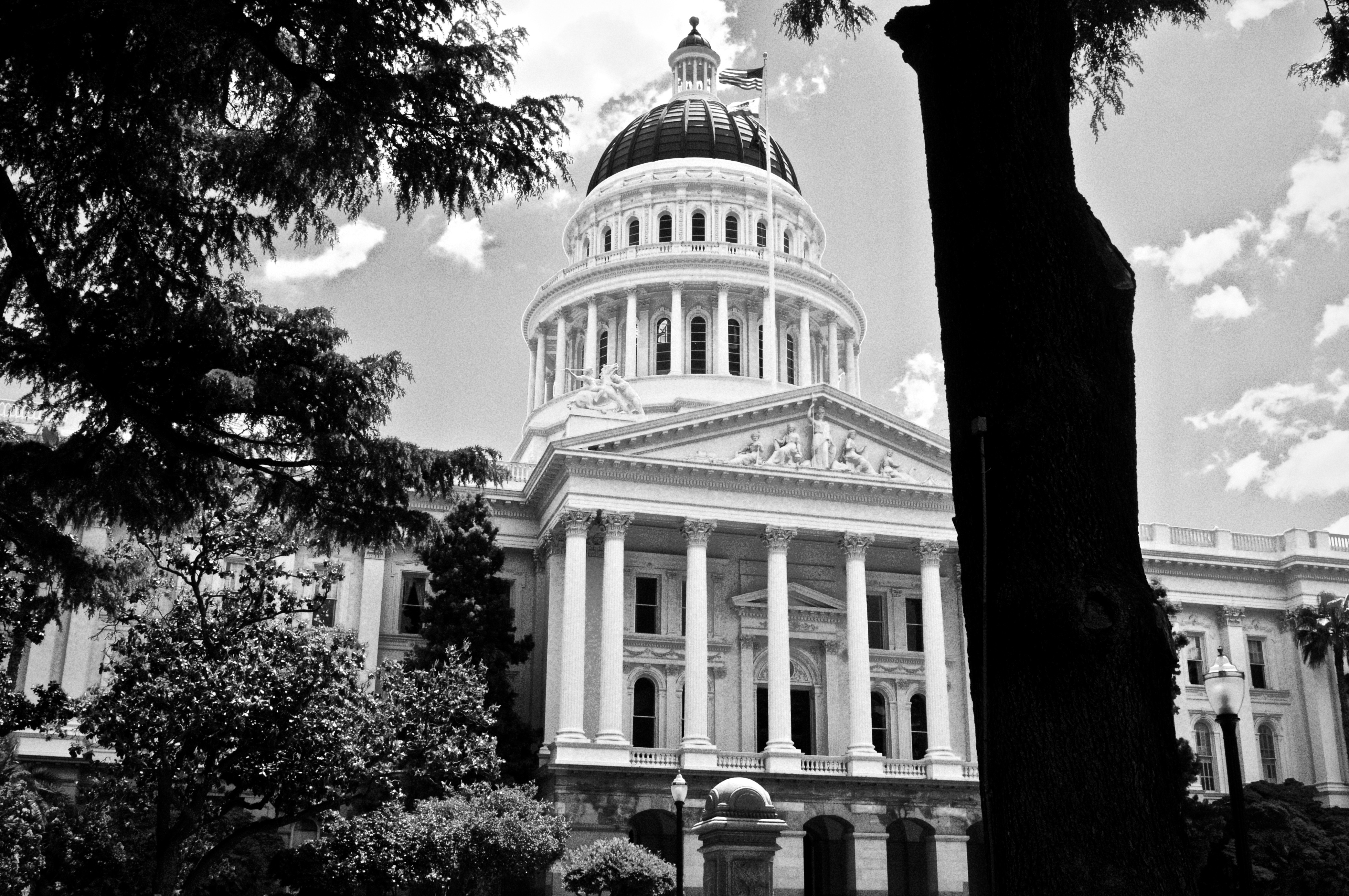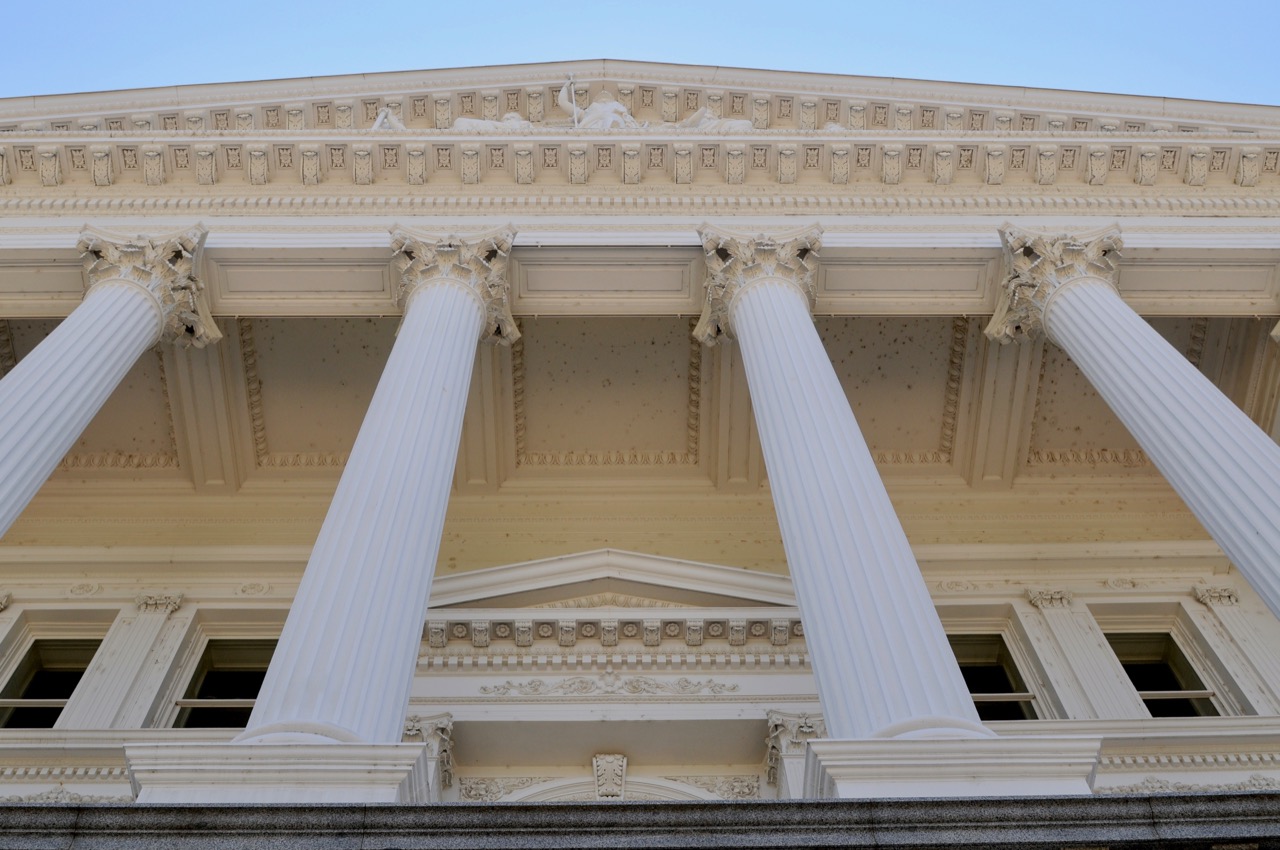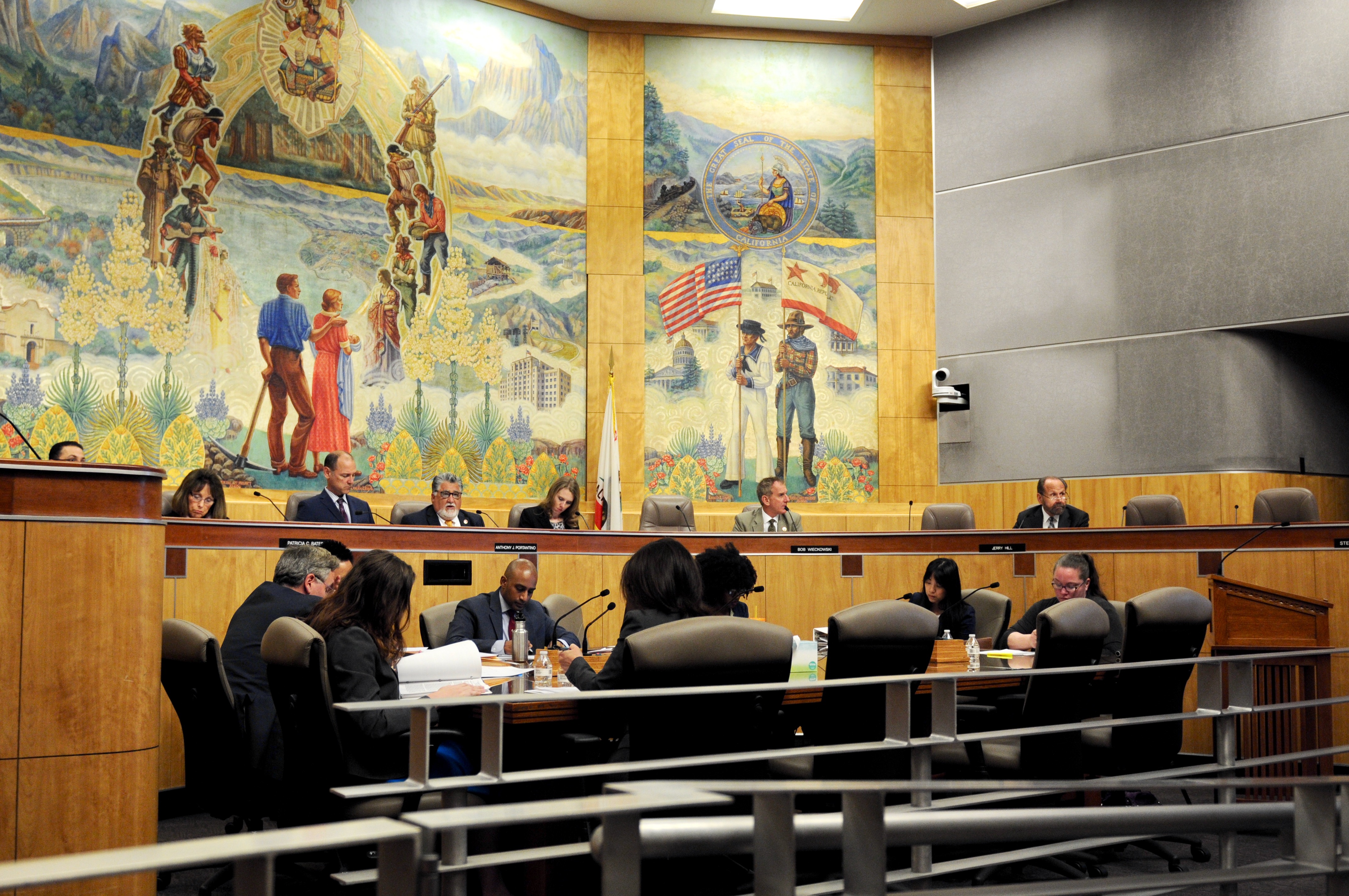
California State Capitol fencing. (Photo: Katy Grimes for California Globe)
Thoughts on Lobbying During the Pandemic
When will the Capitol be fully open again?
By Chris Micheli, April 6, 2021 6:32 am
With the California Legislature in full swing for its 2021 Session, legislative advocacy continues, but in some different ways.
There are far more similarities than differences in lobbying during the pandemic. The biggest difference obviously is the lack of in-person lobbying that would normally be taking place. The legislative process has historically been largely dependent on those in-person discussions, but we have learned it can be done remotely, but not as well. Perhaps it is less productive and more time intensive. But few of us like that way of conducting business.
Has it impacted legislation? Of course. Last year, I am sure some bills passed that might not have passed during “normal” times. And, some bills failed that likely would have passed during non-pandemic times. We’ll never know for certain, but it is likely there has been an impact on outcomes. As we know, there was a clear impact last year on total bills because 3 out of every 4 bills were dropped in 2020.
Bill Letters
We still write our letters of support and opposition to legislation. However, instead of hand-delivering the letters to the committee staff, author’s office, and members of the committee, the letters are uploaded to the committee portal. We were headed in this direction anyways, but now that is the only method of delivery that committees desire.
This ensures that the staff from the committee and the author’s office get it delivered, and that other legislative staff can access the letter as well. This is an easier process, and most staff appreciate the reduction in paper across their desk. Also, in the Assembly, the Members can pull up the actual letters on their laptops.
Member and Staff Meetings
Pre-pandemic, many of us walked the halls of the State Capitol for both scheduled meetings and “drop-ins” with legislators and their staff. That has not occurred since March 16, 2020. Now, these meetings are held by phone or Zoom (or MS Teams, etc.). The ability to simply drop-in on staff no longer can occur while the Capitol is closed other than for hearings and floor sessions, and many Capitol staff members are working remotely at this time.
The difficulty is securing timely meetings. There is back-and-forth on finding a date and time to set-up the phone call or Zoom appointment. This can lead to delays in timely meetings.
We have even engaged in “advocacy day(s)” activities – all remotely of course. We have experiences pros and cons with this approach to lobbying.
Committee Hearings
There are basically two ways to participate – in-person or remotely. In-person is just like it always has been (i.e., testifying in person at the committee hearing room). Both the Assembly and Senate allow telephone testimony as well as televised testimony (by being in a remote committee hearing room at the Capitol building).
The Assembly has opened remote testimony sites at several state office buildings throughout the state. The committees establish a separate line for the “principal witnesses” in support or opposition to the bill. The remaining testimony (often referred to as “Me Too” statements) occurs on a regular phone line.
The telephone testimony option has enabled thousands of people to participate in the legislative process, but also it has frustrated participants and legislators alike. In some instances, participants have spent hours on the phone, only to make a “Me Too” comment at the hearing while others have lost their place in the phone que only to have to start again. And legislators have had to listen to endless comments that follow the exact same script. Some legislators in committee have been subject to cursing and even threats of physical harm.
For hearings, we have also experienced Friday hearings, which are rare occurrences during non-pandemic times. For hearings and Floor sessions, most staff are working remotely. So, there is the added difficulty of reaching them and asking them to communicate with their Members on a time sensitive issue because they are not physically in the building.
Note that, for hearings and Floor sessions, you will have to go through screenings for health (e.g., your body temperature) and security. There is also very limited seating in both committee hearing rooms and the Senate and Assembly Galleries. And, the Legislative Office Building (LOB) is closed to the public entirely.
Floor Sessions
The Assembly does allow some limited interactions with Members, socially distanced and with masks on, of course. These occur outside the Assembly Chamber on the second floor. A lobbyist would send a card through a Sgt. at Arms and, if the legislator desires, she or he can meet the lobbyist. The Senate does not permit sending cards and meeting outside the Senate Chamber.
It is hard for multiple follow-up visits which so often happens in non-pandemic times. That is because it is difficult to have multiple Zoom calls on the same topic with the same Member or staff. In those cases, you may be left with a phone call or email as your follow-up contact with that office.
Coalition Meetings
With meetings outside the Capitol, such as coalition meetings and strategy sessions, what was always an in-person meeting is now either a phone call or a Zoom session. In addition, some of the meetings that used to be held by telephone are now done by Zoom or Teams to allow for greater interaction because there have not been in-person activities in over 12 months.
We have not done in-person coalition meetings since last March, over a year ago now. They are conducted either by phone or on Zoom (or equivalent system). Some of these were normally conducted by phone, but most were held in person.
When will the Capitol be fully open again? Some are optimistic that it could occur for the final month of Session at the end of summer, while others anticipate a return to normalcy in January when the 2022 Session begins. Note that such a start date would mean no return to the current Annex, but instead would occur in the planned “Swing Space” interim office building while the Capitol annex is rebuilt.
- Stay of Appeals - March 4, 2026
- Liability for a Deceased Spouse’s Debt - March 4, 2026
- Wildlife Management Areas - March 3, 2026





It drives me crazy that doing things the way you describe will probably be permanent now (unless we can clean out the legislature) and that this was likely one of the Dems goals in the COVID aftermath.